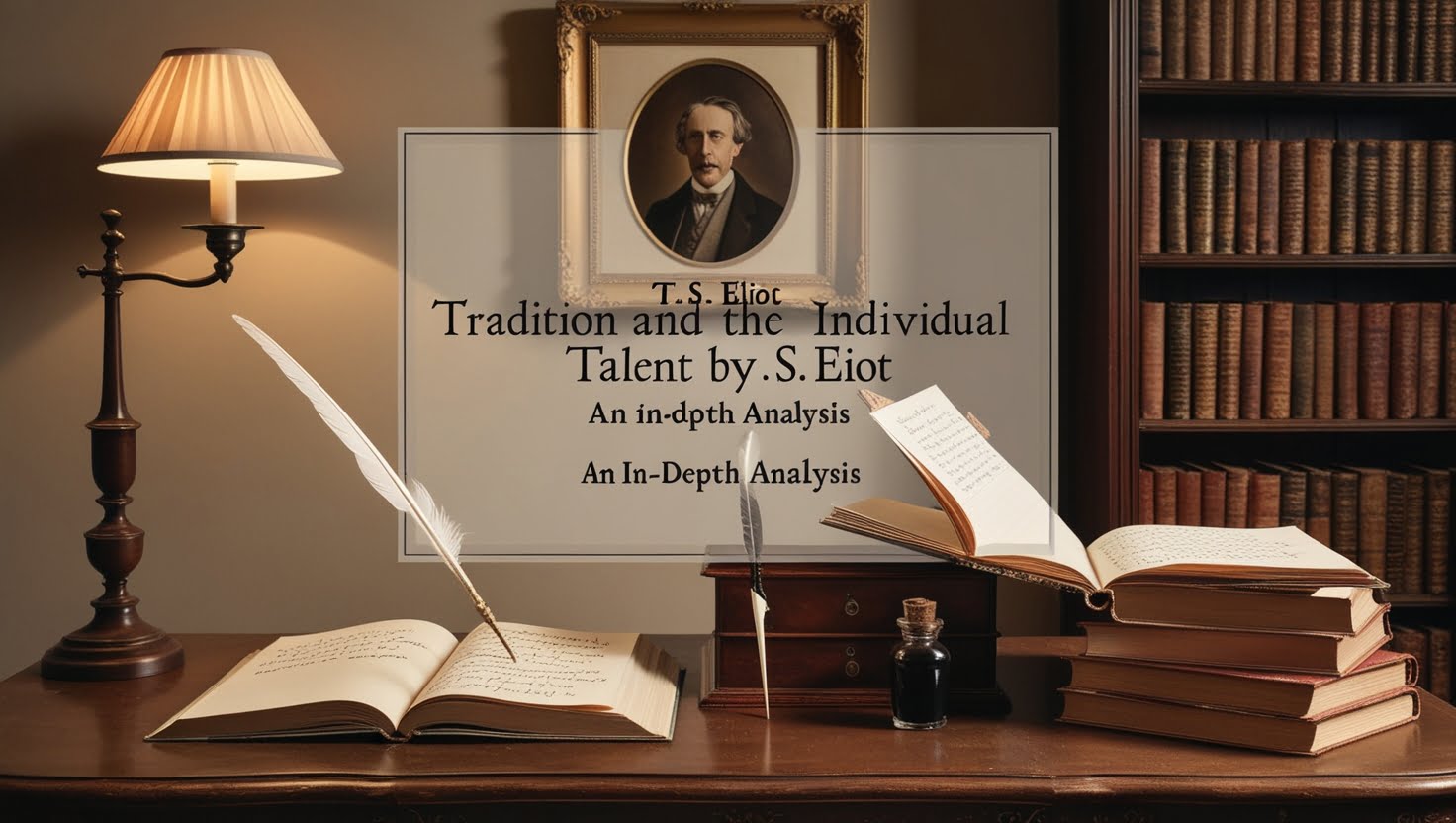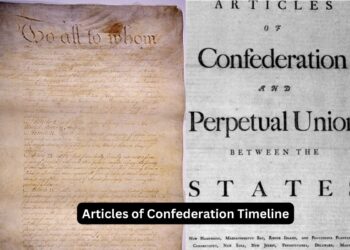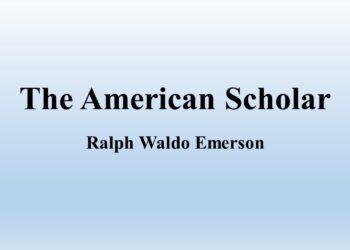Table of Contents
ToggleIntroduction
Tradition And The Individual Talent By T. S. Eliot SummaryT.S. Eliot’s essay Tradition and the Individual Talent, published in 1919, is a seminal work that has greatly influenced literary criticism and the understanding of poetic creation. In this essay, Eliot explores the relationship between tradition and individual creativity, arguing that a poet’s work is inextricably linked to the literary heritage that precedes it. He posits that understanding and acknowledging this tradition is essential for the development of an authentic and meaningful voice in poetry. This extensive summary will delve into the key themes, arguments, and implications of Eliot’s essay, along with a Tradition And The Individual Talent By T. S. Eliot Summary
Summary of Tradition and the Individual Talent
Context of the Essay
Tradition And The Individual Talent By T. S. Eliot Summary Tradition and the Individual Talent emerges from a period of intense change in the literary landscape. The early 20th century was marked by the rise of modernism, a movement characterized by a departure from traditional forms and a quest for new modes of expression. Eliot’s essay addresses the tension between innovation and tradition, emphasizing the necessity of grounding individual creativity within a broader literary context.

Structure of the Essay
Tradition And The Individual Talent By T. S. Eliot Summary Eliot’s essay is divided into several sections, each examining different facets of tradition and its interplay with individual talent. The essay unfolds as a series of interconnected arguments, building a cohesive understanding of how tradition shapes literary innovation.Tradition And The Individual Talent By T. S. Eliot Summary
Key Arguments and Themes
1. The Definition of Tradition
Tradition And The Individual Talent By T. S. Eliot Summary Eliot begins by defining tradition as a living entity, one that evolves and grows over time. He argues that tradition is not merely a static set of rules or a historical record; rather, it is a dynamic force that influences contemporary writers. He asserts that a poet must engage with this tradition to understand their place within it and to create meaningful work.
“The historical sense involves a perception, not only of the pastness of the past, but of its presence.”
This idea of the “historical sense” is central to Eliot’s argument, as it emphasizes the importance of recognizing the impact of past literary works on the present. He suggests that a poet’s individual talent must be informed by this understanding of tradition to create poetry that resonates with depth and significance.Tradition And The Individual Talent By T. S. Eliot Summary
2. The Interconnectedness of Poets
Eliot posits that every poet is part of a continuous conversation with their predecessors. He argues that each new work is influenced by and responds to earlier works, creating a tapestry of literary dialogue. This interconnectedness underscores the importance of tradition in shaping individual creativity.
“No poet, no artist of any art, has his complete meaning alone.”
Tradition And The Individual Talent By T. S. Eliot Summary This assertion highlights the collaborative nature of artistic creation, where individual talent is enriched by the collective heritage of literature. Eliot’s perspective challenges the notion of the solitary genius, suggesting instead that creativity is a communal endeavor rooted in shared experiences and influences.
3. The Role of the Individual Talent
Tradition And The Individual Talent By T. S. Eliot Summary While emphasizing the importance of tradition, Eliot does not diminish the role of individual talent. He argues that each poet brings their unique perspective, experiences, and insights to the literary landscape. However, this individuality must be informed by an understanding of tradition to achieve artistic depth.
“The poet must be aware of the tradition which has been handed down to him and to interpret it in a new light.”
Tradition And The Individual Talent By T. S. Eliot Summary Eliot contends that the poet’s task is to weave their individuality into the fabric of tradition, creating works that are both original and resonant with the past. This balance between tradition and individual talent is crucial for the development of meaningful poetry.
4. The Poet’s Responsibility
Tradition And The Individual Talent By T. S. Eliot Summary Eliot asserts that poets have a responsibility to engage with tradition and to contribute to the ongoing conversation of literature. He argues that it is through this engagement that poets can create works that transcend their own time and speak to future generations.
“The poet’s responsibility is to find a place in this tradition, and by using his individual talent, contribute to it.”
This notion of responsibility reflects Eliot’s belief in the importance of artistic integrity and the need for poets to recognize their role in the broader literary context. By understanding their place within tradition, poets can create works that resonate with timelessness and relevance.Tradition And The Individual Talent By T. S. Eliot Summary
5. The Value of Historical Awareness
Eliot emphasizes the value of historical awareness in poetic creation. He argues that understanding the evolution of literary forms and themes allows poets to build upon existing knowledge and to innovate within established frameworks. This historical perspective enables poets to appreciate the complexity of their craft and to engage with it more deeply.
“The past should be a guide, not a burden.”
Tradition And The Individual Talent By T. S. Eliot Summary This idea reinforces Eliot’s belief that tradition should not stifle creativity; rather, it should serve as a foundation upon which individual talent can flourish. By acknowledging the past, poets can create works that are both informed and innovative.
6. The Unity of Literature
Tradition And The Individual Talent By T. S. Eliot Summary Eliot concludes by asserting that literature is a unified entity, where the contributions of individual poets form a cohesive whole. He emphasizes the importance of understanding this unity in order to appreciate the richness of literary tradition.
“Poetry is not the expression of individual emotions, but the record of individual emotions in relation to the emotions of the past.”
This statement encapsulates Eliot’s central argument that poetry must be viewed through the lens of tradition, highlighting the interconnectedness of individual works and the collective literary heritage.
READ MORE
Implications of Eliot’s Argument
Eliot’s essay has significant implications for literary criticism and the understanding of artistic creation. By advocating for a dialogue between tradition and individual talent, he challenges the prevailing notions of originality and individualism in the literary sphere. His perspective encourages writers to view their work as part of a larger continuum, fostering a sense of responsibility toward their craft and the literary heritage that precedes them.
Themes in Tradition and the Individual Talent
1. Tradition vs. Individuality
Tradition And The Individual Talent By T. S. Eliot Summary Eliot’s exploration of the tension between tradition and individuality is a central theme of the essay. He argues that while individual talent is essential, it must be informed by an understanding of literary tradition to achieve depth and resonance. This theme challenges the idea of the solitary genius and emphasizes the interconnectedness of artistic creation.
2. The Evolution of Literature
Eliot’s conception of tradition as a living entity underscores the theme of the evolution of literature. He argues that literary works are influenced by their predecessors, creating a dynamic conversation that shapes the trajectory of artistic expression. This theme highlights the importance of historical awareness in the development of poetry.
3. The Responsibility of the Poet
Tradition And The Individual Talent By T. S. Eliot Summary The theme of responsibility permeates Eliot’s essay, as he emphasizes the need for poets to engage with tradition and to contribute to the ongoing dialogue of literature. This sense of responsibility reflects Eliot’s belief in the integrity of artistic creation and the importance of recognizing one’s place within the literary canon.
4. The Unity of Literature
Tradition And The Individual Talent By T. S. Eliot Summary Eliot’s assertion that literature is a unified entity reinforces the theme of interconnectedness in artistic creation. He argues that individual works contribute to a collective whole, highlighting the importance of understanding this unity in order to appreciate the richness of literary tradition.
5. Historical Awareness
The theme of historical awareness is central to Eliot’s argument, as he emphasizes the value of understanding the evolution of literary forms and themes. This awareness allows poets to innovate within established frameworks, creating works that are both informed and original.
6. The Nature of Poetry
Tradition And The Individual Talent By T. S. Eliot Summary Eliot’s exploration of the nature of poetry reflects his belief that poetry is not merely an expression of individual emotions but a record of those emotions in relation to the past. This theme challenges conventional notions of poetry and underscores the importance of tradition in shaping poetic expression.

Conclusion
Tradition And The Individual Talent By T. S. Eliot Summary Tradition and the Individual Talent is a foundational text in literary criticism that challenges the dichotomy between tradition and individuality. T.S. Eliot’s exploration of the relationship between these two elements offers profound insights into the nature of poetic creation and the responsibilities of the poet. By advocating for a dialogue between tradition and individual talent, Eliot emphasizes the importance of historical awareness and interconnectedness in the development of meaningful literature. His arguments continue to resonate within the literary community, shaping the discourse on creativity and the role of tradition in artistic expression.Tradition And The Individual Talent By T. S. Eliot Summary
(FAQ)
Q1: What is the main argument of Tradition and the Individual Talent?
Tradition And The Individual Talent By T. S. Eliot Summary The main argument of the essay is that individual talent must be informed by an understanding of literary tradition. Eliot asserts that poetry is a dialogue between the past and the present, and that poets have a responsibility to engage with this tradition to create meaningful work.
Q2: How does Eliot define tradition in the essay?
Eliot defines tradition as a living entity that evolves over time. He argues that tradition is not static but a dynamic force that influences contemporary writers. Understanding this tradition is essential for poets to find their place within the literary landscape.Tradition And The Individual Talent By T. S. Eliot Summary
Q3: What is the significance of the “historical sense” in Eliot’s argument?
The “historical sense” is significant because it emphasizes the importance of recognizing the past’s influence on the present. Eliot argues that poets must possess this awareness to create works that resonate with depth and significance.Tradition And The Individual Talent By T. S. Eliot Summary
Q4: How does Eliot view the role of the individual poet?
Eliot views the individual poet as both influenced by and responsible for engaging with tradition. While individual talent is essential, it must be grounded in an understanding of literary heritage to achieve authenticity and meaning.Tradition And The Individual Talent By T. S. Eliot Summary
Q5: What is the relationship between tradition and innovation according to Eliot?
Eliot argues that tradition and innovation are not mutually exclusive. Instead, he contends that innovation must be informed by tradition, allowing poets to create original works that are still connected to the literary canon.
Q6: How does Eliot’s essay challenge the notion of the solitary genius?
Eliot’s essay challenges the notion of the solitary genius by emphasizing the interconnectedness of literary creation. He argues that individual talent is enriched by engagement with the works of predecessors, fostering a sense of collaboration within the literary community.Tradition And The Individual Talent By T. S. Eliot Summary
Q7: What implications does Eliot’s argument have for literary criticism?
Eliot’s argument encourages literary critics to consider the historical context and interconnectedness of works when evaluating poetry. This perspective fosters a deeper understanding of the complexities of literary creation and the importance of tradition in shaping artistic expression.
Q8: How does Eliot’s essay relate to modernism?
Tradition And The Individual Talent By T. S. Eliot Summary Eliot’s essay is a key text in modernist literature, as it grapples with the themes of fragmentation and the search for meaning in a rapidly changing world. His emphasis on tradition reflects the modernist struggle to reconcile innovation with established forms.
Q9: What impact has Tradition and the Individual Talent had on subsequent literary criticism?
The essay has had a profound impact on literary criticism, shaping discussions around the importance of tradition and historical awareness in artistic creation. Eliot’s ideas continue to influence how critics and writers approach the relationship between individual talent and literary heritage.Tradition And The Individual Talent By T. S. Eliot Summary
Q10: How does Eliot’s perspective on poetry differ from Romantic views?
Eliot’s perspective differs from Romantic views, which often emphasize individual expression and emotion as the core of poetry. Eliot argues that poetry is not solely an expression of individual emotions but a record of those emotions in relation to the literary past, highlighting the importance of tradition in shaping poetic expression.
Tradition And The Individual Talent By T. S. Eliot Summary This summary and analysis of Tradition and the Individual Talent aim to provide a comprehensive understanding of T.S. Eliot’s influential essay, its themes, and its significance within the context of literary criticism and modernism.
READ MORE
















